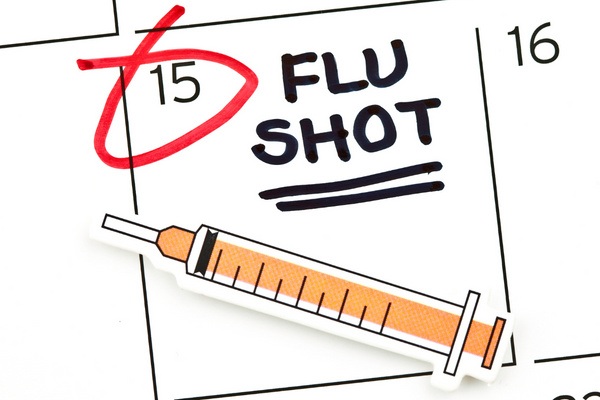November 22, 2022
As someone with kidney disease or a transplant, you probably know that getting a flu shot can offer the best protection from this severe disease. But should you get it every year? Is it safe to get the flu and the COVID vaccine or booster at the same time?
Dr. Harold Manley, a senior pharmacy director, answers these questions and more: "I've been a pharmacist for almost 30 years. I've always had an interest in medications and how they impact patients with kidney disease so I'm particularly excited to share information about flu vaccines and their use in people with kidney disease."
What is the flu or influenza?
The flu is a mild to severe respiratory illness caused by influenza viruses that can be potentially deadly.
"Poor outcomes, like hospitalization and mortality, associated with the flu can happen to anybody at any age. The risk is higher as we age or if we have a chronic condition," said Dr. Manley. "Regardless, the severity and duration of the illness are generally less in those who are vaccinated versus those who are not."
People who have a weakened immune system, including those with kidney disease, who are on dialysis, or who have a transplant, are at high risk of catching and experiencing complications from the flu.
Others at high risk include:
- People who are pregnant
- People over the age of 65
- Nursing home residents
- People who have diabetes
- Young children
Have questions about the flu? Get answers through NKF Cares, our patient information center. Call toll-free at 855.NKF.CARES (855.653.2273) or email nkfcares@kidney.org.
Do I need to get the flu shot every year?

It is crucial to get the flu shot every year because the viruses that are most likely to cause illness constantly change.
"Everyone, regardless if you have kidney disease, should consider influenza vaccination on a yearly basis because the virus mutates and changes," said Dr. Manley. "The formulation of the vaccine also changes."
Aim to get the shot between late September and early October to give your body time to build immunity before flu season kicks off. However, getting the flu shot later is better than never.
"It takes about 2 weeks for protection to develop after getting a flu shot. You need to have a certain antibody threshold in your body to have protection against the flu," said Dr. Manley. "Once you're maximally protected, your antibodies are going to decline over time. If you get the shot too soon, your antibody levels may be insufficient towards the end of the flu season."
Types of flu shots:
- Inactive flu viruses that are not infectious.
- Live, weakened flu viruses that produce an immune response without causing infection.
Flu shots come in a standard or higher dose. Those with kidney disease are likely to get the higher dose vaccine, although it is currently only approved by the FDA for people over the age of 65. There is also a nasal spray vaccine, but it's not recommended for those with advanced stages of kidney disease or who have a kidney transplant because it is only available as a live, weakened vaccine.
Speak with a healthcare professional to find out which flu vaccine is right for you.
Is it safe to get the flu and COVID vaccine or booster together?

In most cases, it is safe to get the flu and COVID-19 vaccine or booster at the same time.
"Our immune system can handle more than one antigen or more than one virus at a time–That's how it works," said Dr. Manley. "We're always being bombarded by different viruses and bacteria. Our immune system is phenomenal, and it can address all these different assaults on our bodies. So, your body can handle the COVID and the flu vaccine."
The most significant difference between getting either vaccine on their own versus together is a higher chance of more noticeable side effects, like a sore arm or body aches.
Learn more about getting the flu and COVID vaccine or booster.
More ways to stay safe
If you already got your flu vaccine, congratulations! You’ve taken a great step in protecting yourself from the flu.
Here are six more ways to stay safe:
- Wear a mask.
- Wash your hands.
- Avoid touching your face, eyes, and mouth.
- Frequently disinfect surfaces in your house.
- Stay hydrated, eat healthily, and exercise.
- Avoid being in close contact with people who are sick.
Get the latest flu updates with the CDC’s Weekly U.S. Influenza Surveillance Report.
Get the latest in kidney research and treatment
Join us as we highlight the latest in kidney research, bring you up-to-date on kidney care, and answer questions from patients to help them live well with kidney disease or a transplant. Subscribe to Hot Topics in Kidney Health.

















